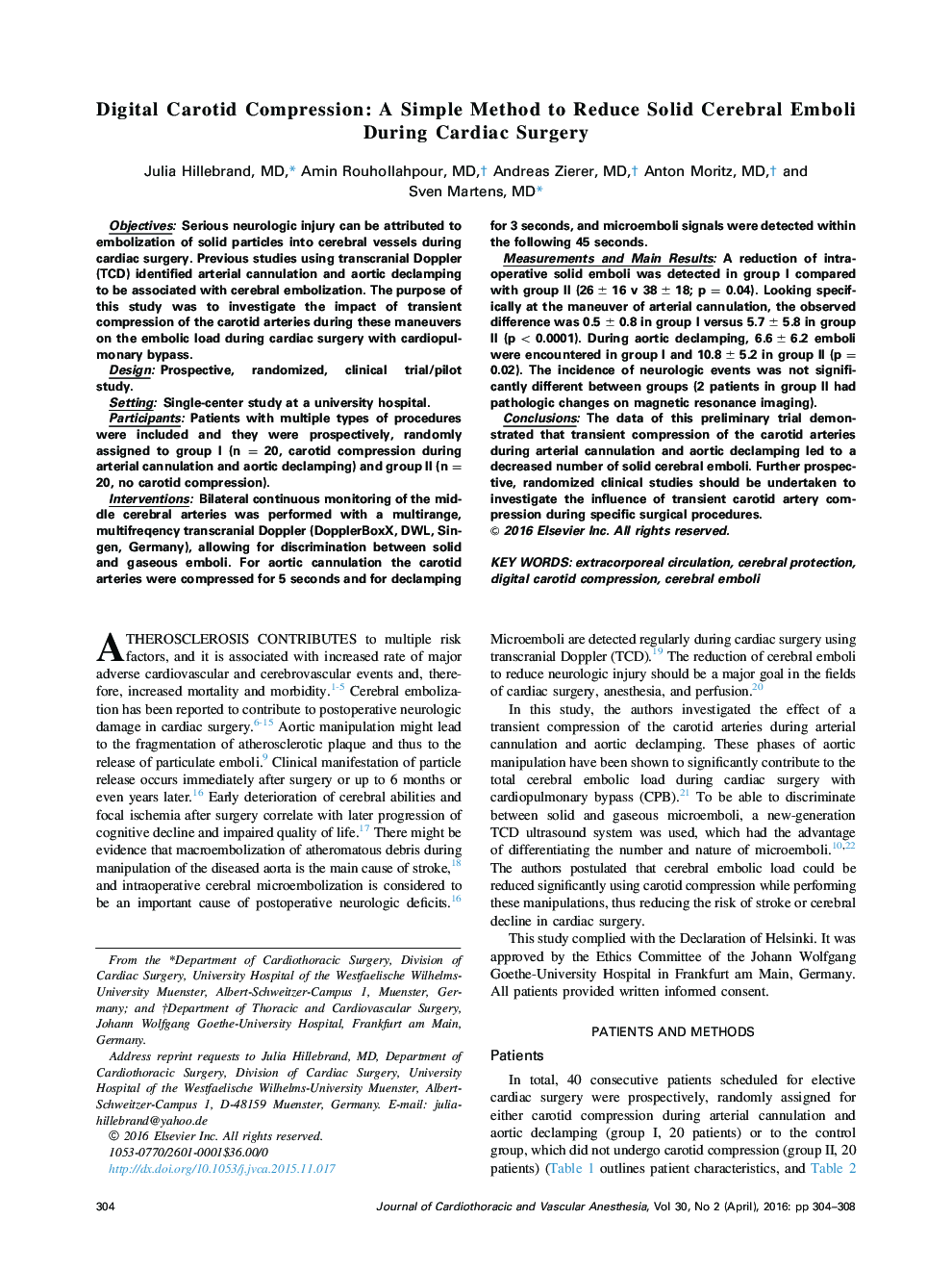| کد مقاله | کد نشریه | سال انتشار | مقاله انگلیسی | نسخه تمام متن |
|---|---|---|---|---|
| 2758864 | 1150142 | 2016 | 5 صفحه PDF | دانلود رایگان |

ObjectivesSerious neurologic injury can be attributed to embolization of solid particles into cerebral vessels during cardiac surgery. Previous studies using transcranial Doppler (TCD) identified arterial cannulation and aortic declamping to be associated with cerebral embolization. The purpose of this study was to investigate the impact of transient compression of the carotid arteries during these maneuvers on the embolic load during cardiac surgery with cardiopulmonary bypass.DesignProspective, randomized, clinical trial/pilot study.SettingSingle-center study at a university hospital.ParticipantsPatients with multiple types of procedures were included and they were prospectively, randomly assigned to group I (n = 20, carotid compression during arterial cannulation and aortic declamping) and group II (n = 20, no carotid compression).InterventionsBilateral continuous monitoring of the middle cerebral arteries was performed with a multirange, multifreqency transcranial Doppler (DopplerBoxX, DWL, Singen, Germany), allowing for discrimination between solid and gaseous emboli. For aortic cannulation the carotid arteries were compressed for 5 seconds and for declamping for 3 seconds, and microemboli signals were detected within the following 45 seconds.Measurements and Main ResultsA reduction of intraoperative solid emboli was detected in group I compared with group II (26±16 v 38±18; p = 0.04). Looking specifically at the maneuver of arterial cannulation, the observed difference was 0.5±0.8 in group I versus 5.7±5.8 in group II (p<0.0001). During aortic declamping, 6.6±6.2 emboli were encountered in group I and 10.8±5.2 in group II (p = 0.02). The incidence of neurologic events was not significantly different between groups (2 patients in group II had pathologic changes on magnetic resonance imaging).ConclusionsThe data of this preliminary trial demonstrated that transient compression of the carotid arteries during arterial cannulation and aortic declamping led to a decreased number of solid cerebral emboli. Further prospective, randomized clinical studies should be undertaken to investigate the influence of transient carotid artery compression during specific surgical procedures.
Journal: Journal of Cardiothoracic and Vascular Anesthesia - Volume 30, Issue 2, April 2016, Pages 304–308